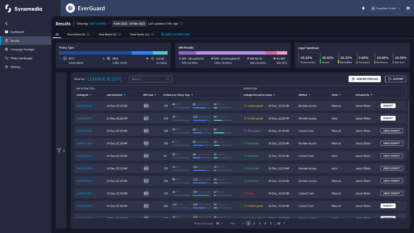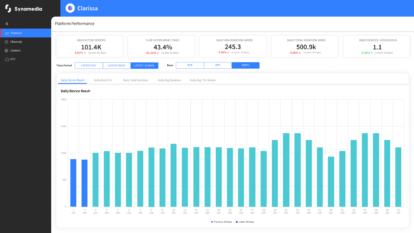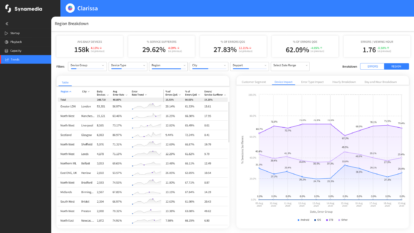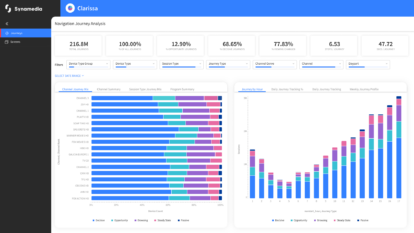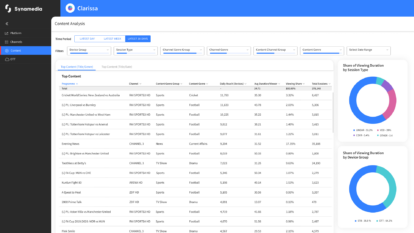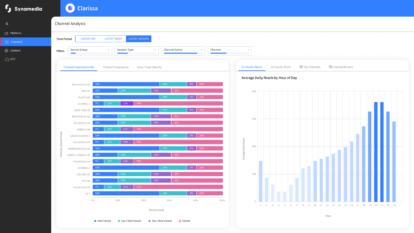As the confetti settles for the Kansas City Chiefs and San Francisco 49’ers after a riveting 2024 Super Bowl, the sports streaming industry is doing a self-assessment. With 123.7M total viewers watching the big game across various streamers and CBS broadcast – it’s clear viewers prefer more options. But is the technology keeping up with the demand?
Despite the undoubted enthusiasm from sports fans, the past year has been tumultuous for sports distribution, with stagnant rights fees, limited broadcast competition, and sluggish subscriber growth, but that only leaves so much more opportunity for growth in the sector.
Redefining the Playing Field
The landscape of broadcast rights, particularly in top-tier sports, is struggling. While the NFL celebrates an impressive $110 billion deal and the NBA anticipates upticks in US rights fees, the same can’t be said for the broader global market. Serie A’s recent deal in Italy saw a decrease in revenue and the NBA faced setbacks in Germany as well. The future of broadcast rights now seems to hinge on the interest of streaming giants like Amazon, Apple, and Netflix in Tier 1 sports.
But even with their deep pockets, the economics of streaming sports are worrisome for them – it is expensive and obtaining and retaining subscribers in a competitive market with a multitude of services to buy is challenging to say the least. And that’s the first of many hurdles they’ll face as they continue to pursue sports streaming.
Chasing the Ball
Sports streaming services once pursued rapid customer acquisition at any cost, but we’re seeing a big change as they pivot towards cost efficiency and sustainable business models. This shift from chasing turnover to chasing profit underlines the need for strategic and effective approaches to streaming that reduce the total cost of ownership.
One of the key strategies to reduce costs and energy is to move video platforms to a multi-tenant cloud SaaS platform approach, powered by best-of-breed streaming technology. This enables easily deployed, flexible solutions that can be adopted on a case-by-case basis.
Embracing SaaS
With the apparent need for more efficiency and flexibility to save money, we’re going to see adoption of cloud SaaS technology emerging as a game-changer, offering unparalleled efficiency and flexibility. For example, for sports with spotty demand, it makes sense to reduce processing costs by only delivering video when a stream is requested by an end user. On the flipside, for more sustained live demand where quality and reliability are key – like the Super Bowl – we need highly scalable solutions with low latency. Only SaaS can enable that type of flexibility.
Dreaming of the monetisation possibilities
As regulations tighten and consumer preferences evolve, sports streaming platforms have to innovate their monetisation strategies. One way to do so is with AI-based dynamic ad-insertion, which enables personalised ad placement directly into programming, so the ads on the field banners are personalised to each viewer. But we’ll even be able to go a step beyond that, with hyper-customisation of ads where the logo on Patrick Mahome’s helmet can be customised according to viewer preferences. The sky is the limit!
Tackling Piracy
No matter how hard we wish, piracy issues aren’t going to vanish into thin air any time soon, especially with the growing number and cost of subscriptions required to keep up with available content – particularly sports content.
The type of theft that is especially prevalent is that of content from OTT sports services’ CDNs. To combat this, the industry is looking to replace easily pirated CDN tokens with new Common Access Token (CAT) CDN tokens. However, to really get ahead of it we need to come together as an industry and agree on solutions for CATs as it’s not an option for every single OTT platform to impose new, secure tokens on multiple CDNs.
Making it to the end zone
Despite the many hurdles in streaming sports, the appetite for it continues to grow, which is especially evident from the record-breaking Super Bowl viewership numbers. By leveraging cloud scalability and prioritizing user experience, service providers can capitalize on the vast opportunities of sports streaming.
As we navigate these uncertainties of sports streaming, one thing remains clear: the future belongs to those who dare to innovate – and the payoff will be massive.
To learn more about how Synamedia can help navigate the challenges of sports streaming, check out Quortex Play, and our video streaming and VOD, Time-shift TV and cDVR solutions.
About the Author
Julien Signes leads Synamedia’s Video Network business. One of the industry’s foremost experts on video processing, Julien advised emerging video technology businesses on financing and helped them scale globally before joining Synamedia in early 2019. He also provided advice to Atlantic Bridge, a global venture capital firm.
Julien founded Envivio in 2000 and as CEO he led the company through private equity financing and a NASDAQ IPO to create the global leader in software-based video encoding. Ericsson acquired the business in 2015. While at France Telecom (now Orange) in the 1990s, Julien led the development of the MPEG-4 standard, resulting in multiple patents for MPEG-4 virtual reality and 3D graphics support.

